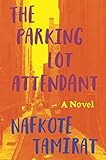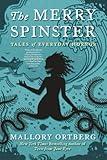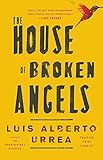We wouldn’t dream of abandoning our vast semi–annual Most Anticipated Book Previews, but we thought a monthly reminder would be helpful (and give us a chance to note titles we missed the first time around). Here’s what we’re looking out for this month — for more March titles, check out our First-Half Preview. Let us know what you’re looking forward to in the comments!
(Also, as Millions founder and publisher C. Max Magee wrote recently, you can help ensure that these previews, and all our great books coverage, continue for years to come by lending your support to the site as a member. The Millions has been running for nearly 15 years on a wing and a prayer, and we’re incredibly grateful for the love of our recurring readers and current members who help us sustain the work that we do.)
 Men and Apparitions by Lynne Tillman: News of a new Tillman novel is worthy of raising a glass. Men and Apparitions is the follow-up novel to Tillman’s brilliant, ambitious American Genius: A Comedy. Men and Apparitions looks closely at our obsession with the image through the perspective of cultural anthropologist Ezekiel “Zeke” Hooper Stark. Norman Rush says, “this book is compelling and bracing and you read many sentences twice to get all the juice there is in them.” Sarah Manguso has said she is “grateful” for Tillman’s “authentically weird and often indescribable books.” I second that. (Anne)
Men and Apparitions by Lynne Tillman: News of a new Tillman novel is worthy of raising a glass. Men and Apparitions is the follow-up novel to Tillman’s brilliant, ambitious American Genius: A Comedy. Men and Apparitions looks closely at our obsession with the image through the perspective of cultural anthropologist Ezekiel “Zeke” Hooper Stark. Norman Rush says, “this book is compelling and bracing and you read many sentences twice to get all the juice there is in them.” Sarah Manguso has said she is “grateful” for Tillman’s “authentically weird and often indescribable books.” I second that. (Anne)
 Whiskey & Ribbons by Leesa Cross-Smith: Police officer Eamon Michael Royce is killed in the line of duty. His pregnant wife, Evi, narrates Eamon’s passing with elegiac words: “I think of him making the drive, the gentle peachy July morning light illuminating his last moments, his last heartbeat, his last breath.” Months later and wracked with grief, Evi falls for her brother-in-law Dalton: “Backyard-wandering, full-moon pregnant in my turquoise maternity dress and tobacco-colored cowboy boots. I’d lose my way. Dalton would find me. He was always finding me.” The sentences in Cross-Smith’s moving debut are lifted by a sense of awe and mystery—a style attuned to the graces of this world. Whiskey & Ribbons turns backward and forward in time: we hear Eamon’s anxieties about fatherhood, and Dalton’s continuous search for meaning in his life. “I am always hot, like I’m on fire,” Evi dreams later in the novel, still reliving her husband’s death, “burning and gasping for air.” In Cross-Smith’s novel, the past is never forgotten. (Nick R.)
Whiskey & Ribbons by Leesa Cross-Smith: Police officer Eamon Michael Royce is killed in the line of duty. His pregnant wife, Evi, narrates Eamon’s passing with elegiac words: “I think of him making the drive, the gentle peachy July morning light illuminating his last moments, his last heartbeat, his last breath.” Months later and wracked with grief, Evi falls for her brother-in-law Dalton: “Backyard-wandering, full-moon pregnant in my turquoise maternity dress and tobacco-colored cowboy boots. I’d lose my way. Dalton would find me. He was always finding me.” The sentences in Cross-Smith’s moving debut are lifted by a sense of awe and mystery—a style attuned to the graces of this world. Whiskey & Ribbons turns backward and forward in time: we hear Eamon’s anxieties about fatherhood, and Dalton’s continuous search for meaning in his life. “I am always hot, like I’m on fire,” Evi dreams later in the novel, still reliving her husband’s death, “burning and gasping for air.” In Cross-Smith’s novel, the past is never forgotten. (Nick R.)
 Awayland by Ramona Ausubel: Following up on her second novel Sons of Daughters of Ease and Plenty (read about the experience of writing her first novel here at the site), Ausubel now publishes a collection of stories taking place across the globe. Some new, some published previously at The New Yorker and The Paris Review, Library Journal calls them “illuminating and memorable, with plots unfolding like exotic flowers, calm yet bizarre.” (Lydia).
Awayland by Ramona Ausubel: Following up on her second novel Sons of Daughters of Ease and Plenty (read about the experience of writing her first novel here at the site), Ausubel now publishes a collection of stories taking place across the globe. Some new, some published previously at The New Yorker and The Paris Review, Library Journal calls them “illuminating and memorable, with plots unfolding like exotic flowers, calm yet bizarre.” (Lydia).
 The Sparsholt Affair by Alan Hollinghurst: Hollinghurst’s sixth novel has already received glowing reviews in the U.K. As the title suggests, the plot hinges on a love affair, and follows two generations of the Sparsholt family, opening in 1940 at Oxford, just before WWII. The Guardian called it “an unashamedly readable novel…indeed it feels occasionally like Hollinghurst is trying to house all the successful elements of his previous books under the roof of one novel.” To those of us who adore his books, this sounds heavenly. (Hannah)
The Sparsholt Affair by Alan Hollinghurst: Hollinghurst’s sixth novel has already received glowing reviews in the U.K. As the title suggests, the plot hinges on a love affair, and follows two generations of the Sparsholt family, opening in 1940 at Oxford, just before WWII. The Guardian called it “an unashamedly readable novel…indeed it feels occasionally like Hollinghurst is trying to house all the successful elements of his previous books under the roof of one novel.” To those of us who adore his books, this sounds heavenly. (Hannah)
 The Chandelier by Clarice Lispector (translated by Magdalena Edwards and Benjamin Moser): Since Katrina Dodson published a translation of Lispector’s complete stories in 2015, the Brazilian master’s popularity has enjoyed a resurgence. Magdalena Edwards and Benjamin Moser’s new translation of Lispector’s second novel promises to extend interest in the deceased writer’s work. It tells the story of Virginia, a sculptor who crafts intricate pieces in marked isolation. This translation marks the first time The Chandelier has ever appeared in English (Ismail).
The Chandelier by Clarice Lispector (translated by Magdalena Edwards and Benjamin Moser): Since Katrina Dodson published a translation of Lispector’s complete stories in 2015, the Brazilian master’s popularity has enjoyed a resurgence. Magdalena Edwards and Benjamin Moser’s new translation of Lispector’s second novel promises to extend interest in the deceased writer’s work. It tells the story of Virginia, a sculptor who crafts intricate pieces in marked isolation. This translation marks the first time The Chandelier has ever appeared in English (Ismail).
 The Parking Lot Attendant by Nafkote Tamirat: It’s very easy to love this novel but difficult to describe it. A disarming narrator begins her account from a community with strange rules and obscure ideology located on an unnamed island. While she and her father uneasily bide their time in this not-quite-utopia, she reflects on her upbringing in Boston, and a friendship–with the self-styled leader of the city’s community of Ethiopian immigrants–that begins to feel sinister. As the story unfolds, what initially looked like a growing-up story in a semi-comic key becomes a troubling allegory of self-determination and sacrifice. (Lydia)
The Parking Lot Attendant by Nafkote Tamirat: It’s very easy to love this novel but difficult to describe it. A disarming narrator begins her account from a community with strange rules and obscure ideology located on an unnamed island. While she and her father uneasily bide their time in this not-quite-utopia, she reflects on her upbringing in Boston, and a friendship–with the self-styled leader of the city’s community of Ethiopian immigrants–that begins to feel sinister. As the story unfolds, what initially looked like a growing-up story in a semi-comic key becomes a troubling allegory of self-determination and sacrifice. (Lydia)
 The Merry Spinster by Mallory Ortberg: Fairy tales get a feminist spin in this short story collection inspired by Ortberg’s most popular Toast column, “Children’s Stories Made Horrific.” This is not your childhood Cinderella, but one with psychological horror and Ortberg’s signature snark. Carmen Maria Machado calls it a cross between, “Terry Pratchett’s satirical jocularity and Angela Carter’s sinister, shrewd storytelling, and the result is gorgeous, unsettling, splenic, cruel, and wickedly smart.” Can’t wait to ruin our favorite fables! (Tess)
The Merry Spinster by Mallory Ortberg: Fairy tales get a feminist spin in this short story collection inspired by Ortberg’s most popular Toast column, “Children’s Stories Made Horrific.” This is not your childhood Cinderella, but one with psychological horror and Ortberg’s signature snark. Carmen Maria Machado calls it a cross between, “Terry Pratchett’s satirical jocularity and Angela Carter’s sinister, shrewd storytelling, and the result is gorgeous, unsettling, splenic, cruel, and wickedly smart.” Can’t wait to ruin our favorite fables! (Tess)
 The House of Broken Angels by Luis Alberto Urrea: Urrea is one of the best public speakers I’ve ever seen with my 35-year-old eyes, so it’s incredible that it’s not even the thing he’s best at. He’s the recipient of an American Book Award and a Pulitzer nominee for The Devil’s Highway. His new novel is about the daily life of a multi-generational Mexican-American family in California. Or as he puts it, “an American family—one that happens to speak Spanish and admire the Virgin of Guadalupe.” (Janet)
The House of Broken Angels by Luis Alberto Urrea: Urrea is one of the best public speakers I’ve ever seen with my 35-year-old eyes, so it’s incredible that it’s not even the thing he’s best at. He’s the recipient of an American Book Award and a Pulitzer nominee for The Devil’s Highway. His new novel is about the daily life of a multi-generational Mexican-American family in California. Or as he puts it, “an American family—one that happens to speak Spanish and admire the Virgin of Guadalupe.” (Janet)
 Catastrophe by Dino Buzzati (translated by Judith Landry): A collection of stories by the Italian master of experimental fiction who died in 1972. Jhumpa Lahiri says of the book, “Buzzati is the gatekeeper to our collective nightmares, poised on the threshold between the drawing room and existential hell. Judith Landry’s vibrant translations render him at once witty and sinister.” (Lydia)
Catastrophe by Dino Buzzati (translated by Judith Landry): A collection of stories by the Italian master of experimental fiction who died in 1972. Jhumpa Lahiri says of the book, “Buzzati is the gatekeeper to our collective nightmares, poised on the threshold between the drawing room and existential hell. Judith Landry’s vibrant translations render him at once witty and sinister.” (Lydia)
 American Histories: Stories by John Edgar Wideman: Wideman’s new book is a nearly fantastical stretching and blurring of conventional literary forms—including history, fiction, philosophy, biography, and deeply felt personal vignettes. We get reimagined conversations between the abolitionist Frederick Douglass and the doomed white crusader for racial equality John Brown. We get to crawl inside the mind of a man sitting on the Williamsburg Bridge, ready to jump. We get Wideman pondering deaths in his own family. We meet Jean Michel Basquiat and Nat Turner. What we get, in the end, is a book unlike any other, the work of an American master working at peak form late in a long and magnificent career. (Bill)
American Histories: Stories by John Edgar Wideman: Wideman’s new book is a nearly fantastical stretching and blurring of conventional literary forms—including history, fiction, philosophy, biography, and deeply felt personal vignettes. We get reimagined conversations between the abolitionist Frederick Douglass and the doomed white crusader for racial equality John Brown. We get to crawl inside the mind of a man sitting on the Williamsburg Bridge, ready to jump. We get Wideman pondering deaths in his own family. We meet Jean Michel Basquiat and Nat Turner. What we get, in the end, is a book unlike any other, the work of an American master working at peak form late in a long and magnificent career. (Bill)
 Happiness by Aminatta Forna: A novel about what happens when an expert on the habits of foxes and an expert on the trauma of refugees meet in London, one that Paul Yoon raved about it in his Year in Reading: “It is a novel that carries a tremendous sense of the world, where I looked up upon finishing and sensed a shift in what I thought I knew, what I wanted to know. What a gift.” In a starred review, Publisher’s Weekly says “Forna’s latest explores instinct, resilience, and the complexity of human coexistence, reaffirming her reputation for exceptional ability and perspective.” (Lydia)
Happiness by Aminatta Forna: A novel about what happens when an expert on the habits of foxes and an expert on the trauma of refugees meet in London, one that Paul Yoon raved about it in his Year in Reading: “It is a novel that carries a tremendous sense of the world, where I looked up upon finishing and sensed a shift in what I thought I knew, what I wanted to know. What a gift.” In a starred review, Publisher’s Weekly says “Forna’s latest explores instinct, resilience, and the complexity of human coexistence, reaffirming her reputation for exceptional ability and perspective.” (Lydia)
 The Neighborhood by Mario Vargas Llosa (translated by Edith Grossman): The Nobel Prize winner’s latest arrives in translation from the extraordinary Edith Grossman. The Neighborhood is symphonic, a “thriller,” if you can call it that, about a detective whose wife gets roped into a debilitating situation. It is set in Llosa’s 1990s Peru, and you see this place with its paradox of grayness and color, juxtaposed with spots of blood. Two women married to very affluent men are having a lesbian affair, and one of their husbands, Enrique, is being blackmailed. When he fails to meet a photo magazine editor’s demands, he is slandered with photos of an erotic encounter on the front pages of the magazine. These two threads will converge at a point of explosion as is wont with Llosa’s novels. While this may not be his best work, it will keep readers reading all the way. (Chigozie)
The Neighborhood by Mario Vargas Llosa (translated by Edith Grossman): The Nobel Prize winner’s latest arrives in translation from the extraordinary Edith Grossman. The Neighborhood is symphonic, a “thriller,” if you can call it that, about a detective whose wife gets roped into a debilitating situation. It is set in Llosa’s 1990s Peru, and you see this place with its paradox of grayness and color, juxtaposed with spots of blood. Two women married to very affluent men are having a lesbian affair, and one of their husbands, Enrique, is being blackmailed. When he fails to meet a photo magazine editor’s demands, he is slandered with photos of an erotic encounter on the front pages of the magazine. These two threads will converge at a point of explosion as is wont with Llosa’s novels. While this may not be his best work, it will keep readers reading all the way. (Chigozie)
 Bury What We Cannot Take by Kirstin Chen: This is an atmospheric novel of betrayal and ardent allegiance to ideology and political choices. When young Ah Liam decides it’s virtuous to report the resistance of his grandmother to Maoist rule to the authorities, he unravels his family with his own hands. His decision leads to the family having to flee the country and for them to have to make a decision: leave a fraction of the family behind or face greater harm. With its striking title about the sacrifice (the “burying”) of those who are left behind, the novel succeeds in drawing a very striking portrait of this turbulent period of Chinese history. (Chigozie)
Bury What We Cannot Take by Kirstin Chen: This is an atmospheric novel of betrayal and ardent allegiance to ideology and political choices. When young Ah Liam decides it’s virtuous to report the resistance of his grandmother to Maoist rule to the authorities, he unravels his family with his own hands. His decision leads to the family having to flee the country and for them to have to make a decision: leave a fraction of the family behind or face greater harm. With its striking title about the sacrifice (the “burying”) of those who are left behind, the novel succeeds in drawing a very striking portrait of this turbulent period of Chinese history. (Chigozie)
Laura & Emma by Kate Greathead: One weekend in 1981, a lifelong New Yorker named Laura, born into old money and drifting aimlessly into her 30s, meets a man, sleeps with him and then loses him, leaving her alone with a child: Emma. From this slightly ignominious beginning, Greathead, a nine-time Moth StorySLAM champion, spins a complex tale of social class and family warfare that follows the quiet struggles of a single mother raising her daughter among the upper crust of New York society. (Michael)
 Camp Austen: My Life as an Accidental Jane Austen Superfan by Ted Scheinman: A look at the world of Jane Austen aficionados (Janeites, they are called) from the son of an Austen scholar who in adulthood found himself at the helm of a major Jane Austen conference. Mallory Ortberg wrote, “it’s so lovely to read a book about the delights, the perils, the peculiarities of fandom, and of the small, joyful enthusiasms therein, that treats its subject both critically and generously.” (Lydia)
Camp Austen: My Life as an Accidental Jane Austen Superfan by Ted Scheinman: A look at the world of Jane Austen aficionados (Janeites, they are called) from the son of an Austen scholar who in adulthood found himself at the helm of a major Jane Austen conference. Mallory Ortberg wrote, “it’s so lovely to read a book about the delights, the perils, the peculiarities of fandom, and of the small, joyful enthusiasms therein, that treats its subject both critically and generously.” (Lydia)
The post March Preview: The Millions Most Anticipated (This Month) appeared first on The Millions.
from The Millions http://ift.tt/2oDmWrc

Comments
Post a Comment